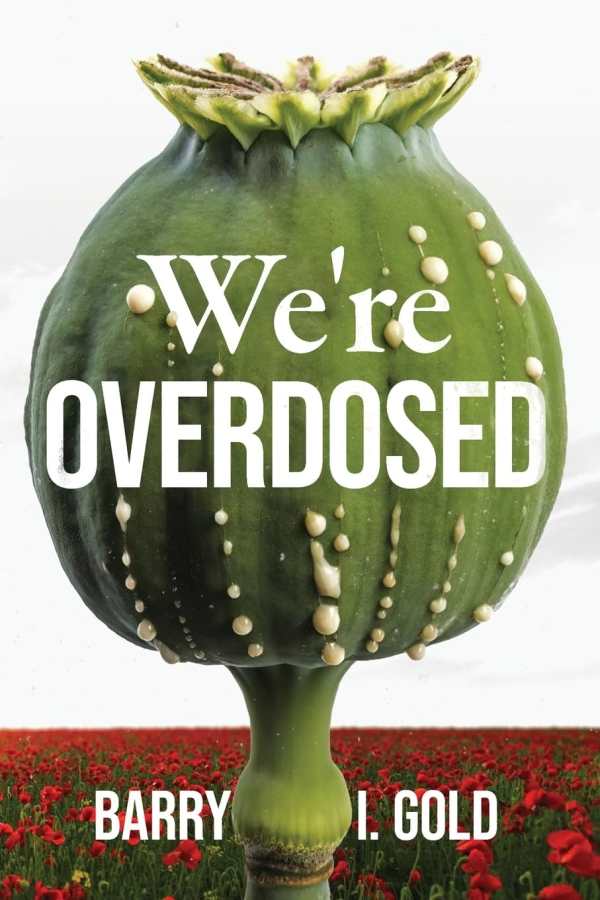We're Overdosed
Written by an industry expert, We’re Overdosed is a comprehensive account of the origins and reach of the opioid crisis in America.
In pharmacologist Barry I. Gold’s topical treatise We’re Overdosed, a microscope is aimed at the increasing horror of the opioid epidemic in the United States.
While much of its space is consumed by Gold’s personal perspective, the book is also replete with information drawn from interviews with medical professionals, recovering addicts, and industry insiders, as well as references to history, data, and relevant articles. Its perspective on the state of drug addiction is thus panoramic—within the context of issues and suggestions for remediation in the United States. Sidebars zoom in to cover the culprits of the epidemic in miniature, as with the business practices of Purdue Pharma. Written against the backdrop of COVID-19, it also references contemporary events to drive home salient points about isolation and the ill effects of social distancing on opioid use. These are drawn upon to proffer arguments for restructuring drug prevention and treatment access.
The book’s potential solutions range from basic to complex; they include reaching out to congressional representatives, prioritizing social interactions, and reigniting efforts toward socialized health care. And the context it provides is wide, including naming entry points of illicit drugs into the US. Its background information is quite extensive as well, with information on substance abuse during wartime, including opium use during the American Civil War, and about how the chemist who made the first aspirin later added acetate and morphine to the recipe to create heroin.
Emphasizing the point that drug addiction is a disease, not a political issue, the book tackles topics like fentanyl with conviction, reflecting the often futile attempts of American cities to stymie street access to opioids. And it covers efforts like clean needle disposal programs and the decriminalization of drug possession with clarity. Trends including “doctor shopping” for more prescriptions and user workarounds for slow-release prescriptions are also demystified. While such topics are bleak, the book’s unveiling of the disparate strings pulled in by the drug industry are tempered well by its empathetic suggestions for workable next steps—though some, without further support, have the flavor of wishful thinking. Further, throughout the text, hindsight is given a clear runway, even when recommendations for solutions are hard to come by.
We’re Overdosed is a data-rich book that provides historical and contemporary perspective on opioid addiction—and approaches to addressing the problem.
Reviewed by
Ryan Prado
Disclosure: This article is not an endorsement, but a review. The publisher of this book provided free copies of the book and paid a small fee to have their book reviewed by a professional reviewer. Foreword Reviews and Clarion Reviews make no guarantee that the publisher will receive a positive review. Foreword Magazine, Inc. is disclosing this in accordance with the Federal Trade Commission’s 16 CFR, Part 255.

